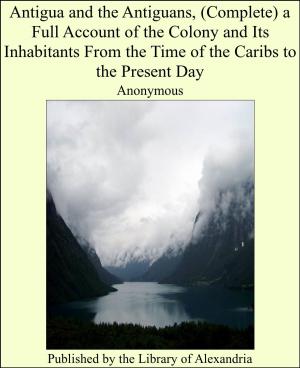Cyprus, as I Saw It in 1879
Nonfiction, Religion & Spirituality, New Age, History, Fiction & Literature| Author: | Sir Samuel White Baker | ISBN: | 9781465615206 |
| Publisher: | Library of Alexandria | Publication: | March 8, 2015 |
| Imprint: | Language: | English |
| Author: | Sir Samuel White Baker |
| ISBN: | 9781465615206 |
| Publisher: | Library of Alexandria |
| Publication: | March 8, 2015 |
| Imprint: | |
| Language: | English |
On the morning of the 4th January we sighted Cyprus at about fifty miles distance, after a smooth voyage of twenty-six hours from Alexandria. The day was favourable for an arrival, as the atmospherical condition afforded both intense lights and shadows. The sky was a cobalt blue, but upon all points of the compass local rain-clouds hovered in dark patches near the surface, and emptied themselves in heavy showers. The air was extremely clear, and as we steamed at ten knots each hour brought out in prominent relief the mountain peaks of Cyprus; Olympus was capped with clouds. Passing through a rain-cloud which for a time obscured the view, we at length emerged into bright sunshine; the mists had cleared from the mountain range, and Troodos, 6,400 feet above the sea-level, towered above all competitors. We were now about ten miles from the shore, and the general appearance of the island suggested a recent snowfall. As the sun shone upon a bare white surface, the sterile slopes and mountain sides were utterly devoid of vegetation, and presented a sad aspect of desolation, which reminded me of the barren range on the shores of the Red Sea. First impressions are seldom correct, but the view of Cyprus on arrival from the south was depressing, and extinguished all hopes that had been formed concerning our newly-acquired possession. This was the treasure acquired by astute diplomacy! For about twenty miles we skirted this miserable coast, upon which not a green speck relieved the eye; at length we sighted the minaret which marked the position of Larnaca, the port or roadstead to which the mail was bound; and in the town we distinguished three or four green trees. We cast anchor about half a mile from the shore. Nine or ten vessels, including several steamers, were in the roadstead, and a number of lighters were employed in landing cargoes. Disappointment and disgust were quickly banished by the reflection that at this season (January) there was nothing green in England: the thermometer in that dreary land would be below freezing-point, while on the deck where we stood it was 64 degrees Fahr. We were quickly in a boat steering for the landing-place.
On the morning of the 4th January we sighted Cyprus at about fifty miles distance, after a smooth voyage of twenty-six hours from Alexandria. The day was favourable for an arrival, as the atmospherical condition afforded both intense lights and shadows. The sky was a cobalt blue, but upon all points of the compass local rain-clouds hovered in dark patches near the surface, and emptied themselves in heavy showers. The air was extremely clear, and as we steamed at ten knots each hour brought out in prominent relief the mountain peaks of Cyprus; Olympus was capped with clouds. Passing through a rain-cloud which for a time obscured the view, we at length emerged into bright sunshine; the mists had cleared from the mountain range, and Troodos, 6,400 feet above the sea-level, towered above all competitors. We were now about ten miles from the shore, and the general appearance of the island suggested a recent snowfall. As the sun shone upon a bare white surface, the sterile slopes and mountain sides were utterly devoid of vegetation, and presented a sad aspect of desolation, which reminded me of the barren range on the shores of the Red Sea. First impressions are seldom correct, but the view of Cyprus on arrival from the south was depressing, and extinguished all hopes that had been formed concerning our newly-acquired possession. This was the treasure acquired by astute diplomacy! For about twenty miles we skirted this miserable coast, upon which not a green speck relieved the eye; at length we sighted the minaret which marked the position of Larnaca, the port or roadstead to which the mail was bound; and in the town we distinguished three or four green trees. We cast anchor about half a mile from the shore. Nine or ten vessels, including several steamers, were in the roadstead, and a number of lighters were employed in landing cargoes. Disappointment and disgust were quickly banished by the reflection that at this season (January) there was nothing green in England: the thermometer in that dreary land would be below freezing-point, while on the deck where we stood it was 64 degrees Fahr. We were quickly in a boat steering for the landing-place.















